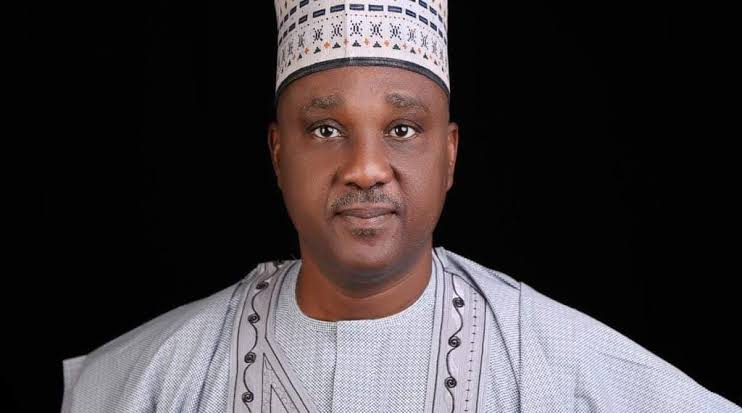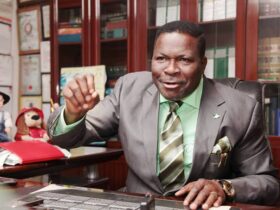The House of Representatives Public Accounts Committee (PAC), has summoned the leadership of the Nigeria Communications Satellite Ltd (NIGCOMSAT), Nigeria Upstream Petroleum Regulatory Commission (NUPRE), and other government agencies to address a significant N20.853 billion audit query.
Other agencies included in this action are the Nigeria Export Processing Zones Authority (NEPZA) and three other entities.
The committee, led by Rep. Bamidele Salam, has issued a 72-hour ultimatum for these agencies to appear before it.
The audit queries, totaling N20.853 billion, were raised against these agencies by the Office of the Auditor-General of the Federation.
Notable among the summoned agencies are the Rural Electrification Agency (REA), Nigeria Export Promotion Council (NEPC), and the Federal University of Petroleum Studies in Effurum, Delta State.
Salam emphasised that this decision followed the agencies’ absence during a committee sitting aimed at addressing the audit queries against them.
He also issued a stern warning, stating that this invitation represents the final notice before a warrant of arrest could be issued against the heads of these agencies.
Out of the six invited entities, only the Rural Electrification Agency sent letters to the committee requesting that the Chief Executive Officer be excused from attending the hearing.
Furthermore, the investigation encompassed the scrutiny of cash advances and the proper allocation of funds budgeted by the House for some of these agencies.
Salam declared, “We are going to use our constitutional power to ensure that every kobo spent by Ministries, Departments and Agencies (MDAs) is prudently utilized.”
The committee members previously expressed their dissatisfaction with the attitude of heads of some government agencies towards parliamentary invitations and called for appropriate sanctions. (NAN)
Abbas calls for regulation of Artificial Intelligence, Robotics
Speaker of the House of Representatives, Abbas Tajudeen, has called for the regulation of Artificial Intelligence (AI), Robotics and other emerging technologies.
Abbas made the appeal in Abuja on Monday at the 2022/2023 Convocation Ceremony of the National Institute for Legislative and Democratic Studies – University of Benin (NILDS-UNIBEN).
The speaker, who disclosed his readiness to sponsor a bill seeking to regulate emerging technologies, stressed the need to have a regulatory framework in place for emerging technologies in the country.
Abbas noted that though new technologies such as Artificial Intelligence and robotics had immense benefits, there was the need to check their misuse and abuse.
He said: “We are all aware of the challenges facing the education sector in Nigeria, including low enrollment, especially in rural areas.
He said in spite of government efforts and huge investment through the Universal Basic Education (UBEC), the challenge remained substantial.
He said out of 258 million out-of-school children worldwide, an estimated 62 million were in Sub-Saharan Africa.
“Nigeria accounts for a substantial percentage of this number. Other related challenges confronting the sector include low quality, outdated curricular, insufficient infrastructure and gender disparities.
“These existing problems have been worsened by insecurity and the COVID-19 pandemic. In north-eastern Nigeria, attacks on schools, students, and teachers profoundly disrupted education.”
Cognisant of these and related challenges, the speaker said President Bola Tinubu was committed to repositioning and revitalising the education sector to make it more suited to meet contemporary challenges.
According to him, of particular interest is the need to reform and update school curricular, to ensure relevance in a rapidly changing global landscape.
“An outdated curriculum has been shown to result in skills mismatch and stagnation in innovation.
” This is important given that we live in a highly digital and innovations that are evolving at the speed of light.”
Abbas noted that technological and scientific innovations such as in the field of Artificial Intelligence (AI) are presenting opportunities hitherto thought impossible.
He also said that AI could create many benefits such as better healthcare, safer and cleaner transport, more efficient manufacturing, and cheaper and more sustainable energy.
He further stressed that integrating AI into education presented a transformative shift in how teaching and learning were conducted.
He added that AI had the potential to customise learning, enhance educational tools, and improve administrative systems, offering several benefits and also posing unique challenges.
He said in spite of the opportunities of AI, there were risks involved. Datasets and algorithms could reflect or reinforce gender, racial or ideological biases.
He said more critically, AI could deepen inequalities by automating routine tasks and displacing jobs.
“There is also likely to be a rise in identity theft and fraud, as evidenced by the use of AI to create highly realistic deep fakes.
“These are intended to misinform, trick and confuse people. Attackers use these maliciously crafted videos, photos and audio to create societal unrest, carry out fraud and damage the reputations of individuals and brands.
“Accordingly and in recognition of the opportunities and threats posed by AI, the 10th House of Representatives will engage stakeholders and experts on this and related issues.”
This, he said, was to leverage their potential and address issues of privacy, accountability, ethics, security and intellectual property.
“We will work with the executive to ensure the integration of emerging technologies like artificial intelligence, robotics, and renewable energy into the curriculum.
“Therefore, in the coming weeks, I will introduce a bill to regulate Artificial Intelligence (AI) and ensure better conditions for the development and use of this innovative technology in Nigeria.
“This will be the first of such effort in Africa and one of only a few undertaken by parliaments worldwide, ” the speaker said. (NAN)










Leave a Reply